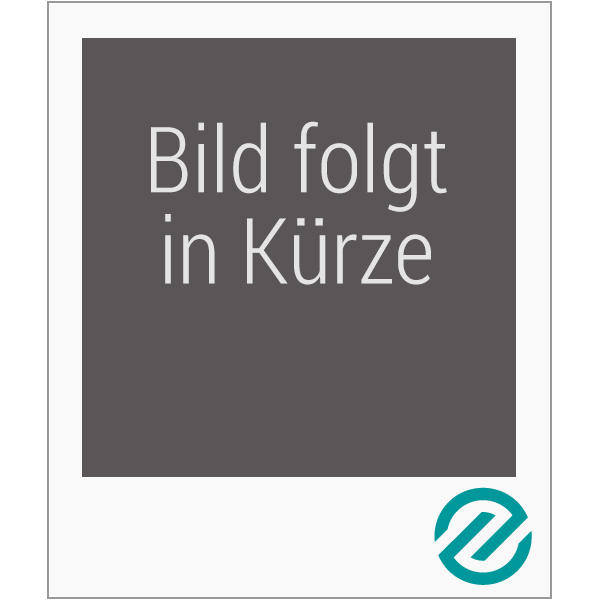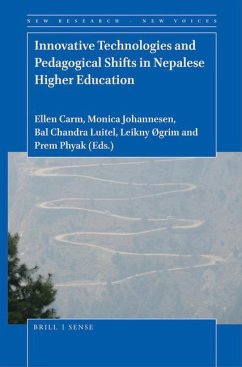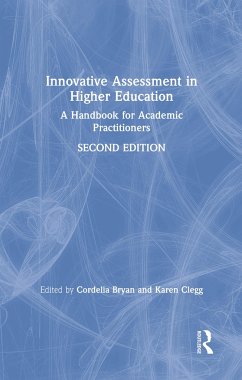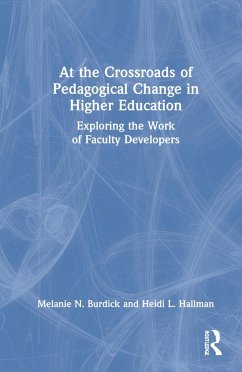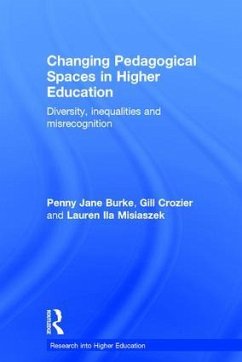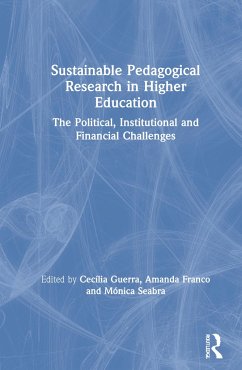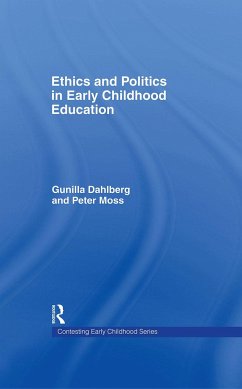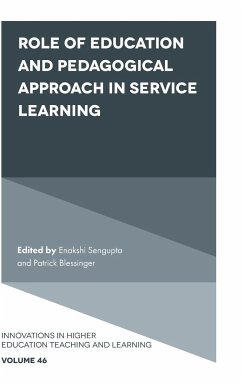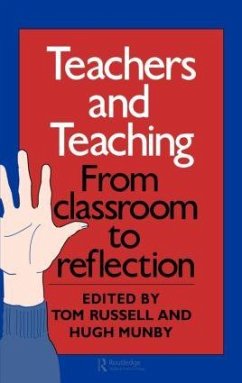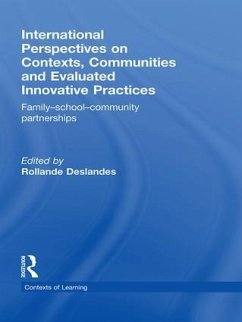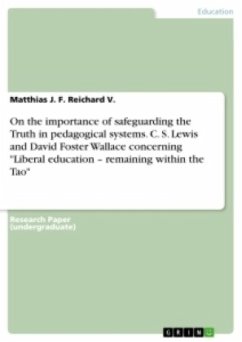Gebundenes Buch
Innovative Pedagogical Practices for Higher Education 4.0
Solutions and Demands of the Modern Classroom
Herausgeber: Asad, Muhammad Mujtaba; Sherwani, Fahad; Churi, Prathamesh Padmakar
Versandkostenfrei!
Versandfertig in 1-2 Wochen
Weitere Ausgaben:

PAYBACK Punkte
76 °P sammeln!




Innovative and creative teaching methods tailored to meet the demands of the current era of Industrial Revolution 4.0 are increasingly prevalent in Higher Education Institutions. This book explores and showcases various aspects of Innovative Pedagogies for Higher Education 4.0 to provide a comprehensive understanding of this evolving field.
Muhammad Mujtaba Asad is an Assistant Professor and Lead Researcher of Educational Technologies and TVET Research at Sukkur IBA University, Sukkur, Pakistan, and Honorary Adjunct Faculty at Sohar University, Sohar, Oman. Dr Mujtaba has national and international experience of more than 10 years in the industrial and educational sectors in educational technologies, work¿ and product¿based education, and technical and vocational education. He has published more than 85 research articles (Web of Science and Scopus Indexed) in international journals and conferences worldwide. Dr Mujtaba has authored three books with Taylor & Francis and CS Publishers. He has received three gold, one silver, and one bronze medal in international research and development completions, with seven best research awards in Malaysia, Korea, Saudi Arabia, Pakistan, and UAE on commercialized projects. Moreover, he is an active member of seven national and international research grants. Dr Mujtaba is an internationally certified educational technologist (Malaysian Board of Technologist) and holds certifications and qualifications in industrial safety and health education from NIOSH and the OSH Department of Ontario, Canada. He is an Editorial Board Member to 12 reputed and indexed international journals. Dr Mujtaba holds several international copyrights and has filed one product patent under the title of HAZFO Expert 1.0 for Drilling Operation. He was awarded an honorary lifetime International Ambassadorship by University Tun Hussein Onn Malaysia based on his academic achievements and community services. Dr Mujtaba also was awarded the title of approved PhD and MPhil/MS supervisor by the Higher Education Commission of Pakistan. Prathamesh Padmakar Churi (SMIEEE, LMCSI, LMISTE) is a Senior member, IEEE and Independent Education Technology Researcher. He was a faculty member in the Computer Engineering Department in the School of Technology, Management, and Engineering, NMIMS University, Mumbai, India. He is an Associate Editor of International Journal of Advances in Intelligent Informatics, International Journal of Innovative Teaching and Learning in Higher Education, and International Journal of Security and Privacy. He is involved in the peer¿review process of reputed IEEE and Springer journals, such as IEEE Transactions on Education, Springer Education and Information Technologies, and 20 other journals. He has published 80+ research papers in national/international conferences and journals (Scopus and SCI Indexed), 6 Patents (including 3 Australian patents) and 5 international books (CRC Press/Taylor & Francis publications) in the field of data privacy and education technology. He has been a keynote speaker, chair, and convener at international conferences, including flagship conferences such as IEEE TALE 2017-2020, Springer ICACDS, etc. He received the Best Young Researcher Award by GISR Foundation for his research contribution in the field of data privacy and security and education technology. He has also received appreciation and best faculty awards from NMIMS University. He received a Best Reviewer Award at IEEE TALE 2020, Springer ETRD, JCHE, and Elsevier IJIM Data Insights. He is an active leader, coach, mentor, and volunteer in many nonprofit organizations. He is a Board of Study member at many universities for curriculum development and educational transformations. Farhad Sherwani is an Assistant Professor at the National University of Computer and Emerging Sciences, Karachi, Pakistan. He has published several research articles as well as three books with Taylor & Francis and CS Publishers. Dr Sherwani was awarded the title of approved PhD and MPhil/MS supervisor by the Higher Education Commission of Pakistan. Razali Bin Hassan is the Director of the Malaysia Research Institute for Vocational Education and Training (MyRIVET). He earned a PhD in education at the University of Warwick, UK, an MS in TVET at the University Putra Malaysia, a BE of technology with education (electrical technology) at the Malaysia University of Technology, and a Certificate of Teaching at the Technical Teachers Training College. Dr Hassan has experience as a teacher, a lecturer, a consultant, a researcher, and a motivator in various ASEAN, European, Middle Eastern, and African countries. He has published several research articles and books in educational technologies and TVET.
Produktdetails
- Verlag: CRC Press
- Seitenzahl: 352
- Erscheinungstermin: 27. September 2024
- Englisch
- Abmessung: 240mm x 161mm x 23mm
- Gewicht: 693g
- ISBN-13: 9781032508597
- ISBN-10: 1032508590
- Artikelnr.: 70288629
Herstellerkennzeichnung
Libri GmbH
Europaallee 1
36244 Bad Hersfeld
gpsr@libri.de
Für dieses Produkt wurde noch keine Bewertung abgegeben. Wir würden uns sehr freuen, wenn du die erste Bewertung schreibst!
Eine Bewertung schreiben
Eine Bewertung schreiben
Andere Kunden interessierten sich für




